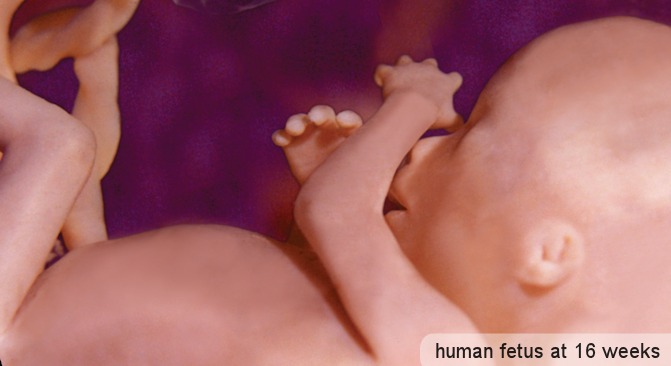A widely-respected California doctor criticized the U.S. Department of Health and Human Services this week for recognizing that a unique, new human life begins at conception.
Dr. Richard Paulson, a professor of obstetrics and gynecology at USC and the president of the American Society for Reproductive Medicine, wrote an op-ed criticizing the new HHS language as religious, rather than scientific.
“This is a religious definition of life, not a scientific one,” he wrote. “… From a scientific perspective, life doesn’t begin at any one point, it is a continuum.”
Paulson, despite his expertise in fertility and reproductive health, made the absurd claim that life does not begin at conception – a claim refuted by dozens of textbooks, medical experts and even some abortion supporters.
He argued:
As an infertility specialist, I witness human fertilization in the laboratory every day. The human egg is a single living cell and it becomes a one-cell embryo if it successfully combines with a live sperm. No new life is formed — the egg and the sperm were already alive — and fertilization is not instantaneous. Nearly 48 hours pass from the time sperm first bind to the outside of the zona pellucida, the human eggshell, until the first cell division of the fertilized egg. The two newly formed cells then have the potential to give rise to a human being, but only if they are appropriately nurtured so that they continue to divide and then successfully implant in the uterus.
The problem with Paulson’s argument is that, while both egg and sperm are alive, neither are genetically unique living human organisms. Eggs and sperm are just parts of the man and woman until they combine.
As pro-life blogger Clinton Wilcox explained in 2013:
“The embryo from fertilization is a unique entity that directs its own development from within. Left alone, a skin cell will not develop into a mature human, but that’s exactly what a zygote will do. All of the embryo’s parts work together for the good (survival and flourishing) of the whole organism.
“Once the sperm and egg unite, they cease to exist and a brand new human organism exists.”
Keep up with the latest pro-life news and information on Twitter. Follow @LifeNewsHQ
This is not a pro-life argument. It is information from biology and embryology textbooks and researchers. For example, Keith L. Moore wrote in his 2003 textbook “The Developing Human: Clinically Oriented Embryology, 7th edition”:
“Human life begins at fertilization, the process during which a male gamete or sperm (spermatozoo developmentn) unites with a female gamete or oocyte (ovum) to form a single cell called a zygote. This highly specialized, totipotent cell marked the beginning of each of us as a unique individual.” “A zygote is the beginning of a new human being (i.e., an embryo).”
Landrum B. Shettles, M.D., P.h.D., the pioneer of in vitro fertilization, similarly said, “The zygote is human life….there is one fact that no one can deny; Human beings begin at conception.”
But Paulson made several arguments to claim life does not begin at conception. He argued this point later in his column:
As women age, the proportion of eggs with chromosomal abnormalities increases dramatically. If such eggs are fertilized, they implant rarely, or result in a miscarriage. In vitro fertilization has shown human reproduction to be a highly inefficient process. Even a chromosomally normal embryo will successfully implant and result in a live birth only about half the time. This is true whether fertilization takes place in the body or in the laboratory.
It appears that Paulson was implying that human life does not begin at fertilization because so many embryos die before implantation. But this is a value-based argument, not a scientific one. Some human beings are more likely to die than others, maybe because of their age or environment or even the point in history in which they were born. But these factors should not determine whether a human being is valuable.
Outside factors should not determine whether a human life is valuable or deserving of protection. Nor should their abilities, their race, gender, their expected lifespan or anything else about them. The only thing that makes sense is to protect every human life from beginning to end.








